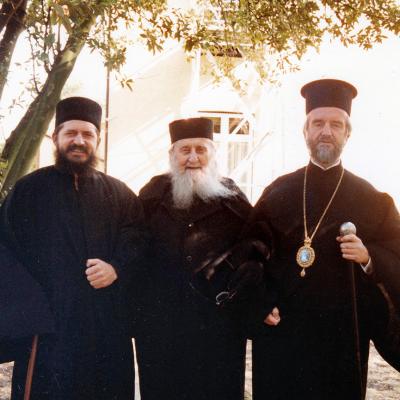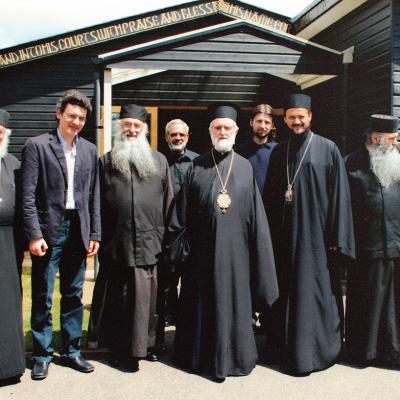Metropolitan John of Pergamon (Zizioulas) was one of the most influential Greek thinkers, who was fortunate, while he was still alive, to change the terms by which theology is done. Despite all the honors, decorations, tours around the world, and conferences, he remained a simple and approachable person. It has been observed that his work manifested “an astonishing absence of denominational arrogance and contemptuous simplification.”
Recently called a “contemporary Church Father,” Zizioulas usually tried to find the most important foundation of truth, contrasting it with what he considered unimportant or secondary. One can easily remark that his theological proposal constitutes reading in conformity with Church doctrine and retaining its inner coherence. As the late Fr. John Meyendorff points out, “Zizioulas’ disciplined and critical mind finds itself in constant dialogue with others, either giving them credit or criticizing them—mostly on grounds of one-sidedness, i.e., on the ground that they lack an authentically ‘catholic’ grasp of ecclesial reality.”
Participating in various ecumenical, ecological, scientific, etc. discussions, Zizioulas’ view of the world became more insightful and comprehensive. Considering his theological vision from 1970 until the end of his life, one should emphasize that it was a combination of Orthodox tradition and Western “concerns” (individualism, globalization, bioethical problems, etc.). Those concerns have become global over time, thanks to Western culture having the power to transplant itself to all sides of modern humanity. The greatness of Zizioulas, in the words of Colin Gunton, “is shown in the very tension in his work, in the fact that he allows the weaknesses of the tradition to come to light while being and acting faithful to it all the time.” In other words, he possessed a provocative thought, even in defiance of traditional theology, which presents a great inclusion and softening of the angles of reflection. As Fr. Dario Chiapetti noted, Zizioulas’ theological approach highlights the significance of aporia through detailed argument and the related identification of the “third option.”
Living in the West and conducting theological and philosophical dialogue with various interlocutors, Zizioulas never stopped emphasizing his Orthodox origin and starting point. In McPartlan’s words, “There is a vitality and energy in his writing and in his vision, which he expressly associates with the Orthodox tradition from which he comes.”
Metropolitan John was a theologian of experience and events beyond mere intellectual leisure. According to those who knew him the best, he kept strict water fast during the lent. Despite his exceptional intellectual qualities, which he invested in the service of the Church and its theology, he dealt with theological issues existentially, not intellectually. His mind was working hard and fast until the end. When interacting with him, it was impressive how much he respected his interlocutor because he always looked him deep in the eyes, even if he was an ordinary student. He said once about a younger theologian that forced Zizioulas to answer new questions which he hadn’t thought of before. (“He somehow entered into the deepest of my intentions…”). The Metropolitan was a liturgist and not a ceremonial ritualist; he served the Church with his whole being.




